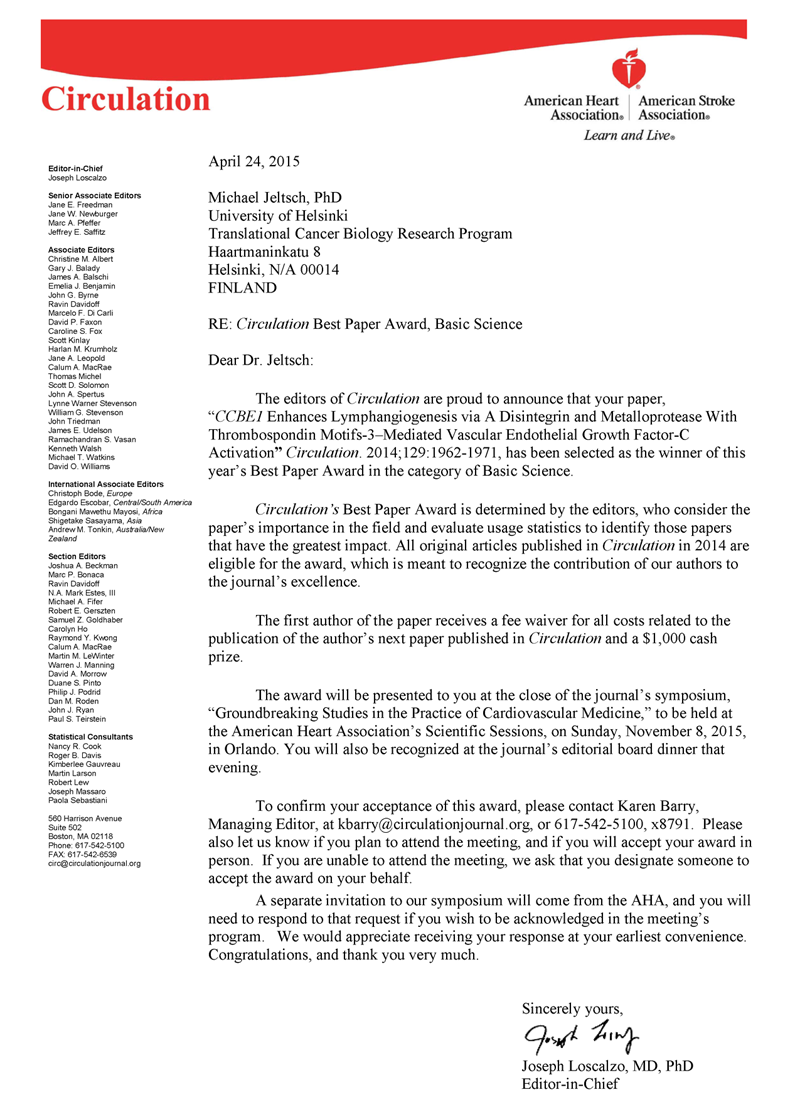Best paper award
jeltsch - p, 05/01/2015 - 22:07
 We have won Circulation’s 2014 Best Paper Award in the category of Basic Science. Circulation is the leading cardiology journal and the organ of the American Heart Association. Already when we published the paper (titled “CCBE1 Enhances Lymphangiogenesis via A Disintegrin and Metalloprotease With Thrombospondin Motifs-3–Mediated Vascular Endothelial Growth Factor-C Activation”), it was clear that it provided a major overhaul of our understanding of the VEGF-C growth factor and it got featured by Open Heart. The article manages to provide multiple new insights:
We have won Circulation’s 2014 Best Paper Award in the category of Basic Science. Circulation is the leading cardiology journal and the organ of the American Heart Association. Already when we published the paper (titled “CCBE1 Enhances Lymphangiogenesis via A Disintegrin and Metalloprotease With Thrombospondin Motifs-3–Mediated Vascular Endothelial Growth Factor-C Activation”), it was clear that it provided a major overhaul of our understanding of the VEGF-C growth factor and it got featured by Open Heart. The article manages to provide multiple new insights:
- It identifies the mechanism how a mutation in the CCBE1 gene causes the human hereditary disease Hennekam Syndrome.
- It forces a re-evaluation of previous research. VEGF-C has been viewed in a too simplistic manner in the past, not appreciating that its different forms have vastly different properties. This research shows that VEGF-C cannot only promote lymphatic vessel growth, but that it can also inhibit it, if it has not been activated by proteases. Almost half of all publications on VEGF-C have measured VEGF-C and correlated its levels to certain disease outcomes. However, none of these measurements did differentiate between active and inactive VEGF-C.
- Most importantly, VEGF-C is studied as a potential biopharmaceutical to treat lymphedema (Lymfactin®), while drugs that inhibit VEGF-C are in clinical trials to treat cancer (VGX-100). The findings of this research indicate, that the current treatment strategies are not optimal, and that molecules like CCBE1 could be used to improve current drug designs.



